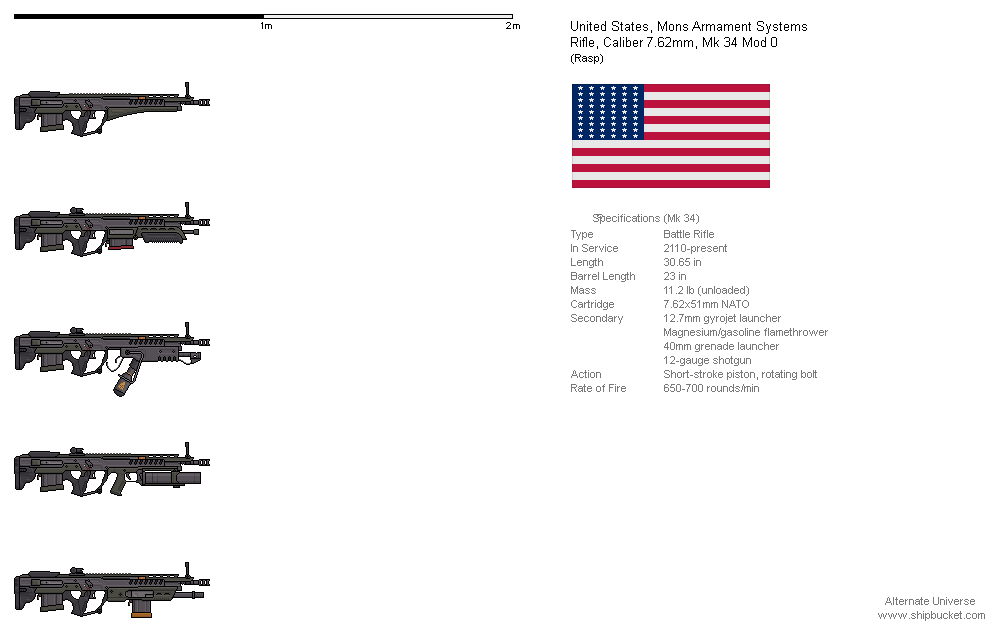
From the ForgottenWeapons video 'Shooting the M14: Full Auto Really Uncontrollable?'
Welcome to the Battle Rifle Challenge. Your task is to draw a battle rifle in either Gunbucket or Weaponbucket scale. Please read the design requirements and challenge rules before posting a submission. Members of the community who have participated in past challenges will note that the scoring system has been modified. The existing 'Drawing Category' has been retained, while the three other categories have been replaced with a more general 'Design Quality' category.
Design Requirements
- Your submission must depict a fictional battle rifle, that is, a semi-automatic or select fire service rifle chambered for a full-power cartridge.
Challenge Rules
- Participants may submit multiple images with one or more views.
- All images and views should show derivatives or variants of the same battle rifle family.
- Each submitted image should be a Shipbucket template modified to include the participant’s art. Templates which include a data sheet are allowed.
- All art must be in either Gunbucket or Weaponbucket scale and conform to the Shipbucket style guidelines.
- A textual description accompanying each submission is permitted, but not necessary.
- Non-serious entries, or entries substantially deviate from the challenge requirements, are not allowed.
- Off-topic posts will be reported to the relevant authorities.
This challenge will run until the 3rd of October, ending at 23:59 UTC-12 (International Date Line West).
A countdown timer can be found at this link.
A poll will be held after this date. This normally occurs within an hour of the deadline. Members of the Shipbucket community will have an opportunity to rate each submission. Please provide honest and meaningful scores for each entry. Responses which grant maximum scores to a select group of entries, and minimum scores to all other entries, will be deleted. Members of the community who manipulate the results in such a fashion may also be subject to a permanent ban. Scores will be allocated in two categories, each with a scale of 1 to 10:
- Drawing Quality - The overall quality of the drawing. One might consider detailing, shading, and accuracy.
- Design Quality -The quality of the design presented, irrespective of drawing quality. One could consider feasibility, practicality, and realism.














